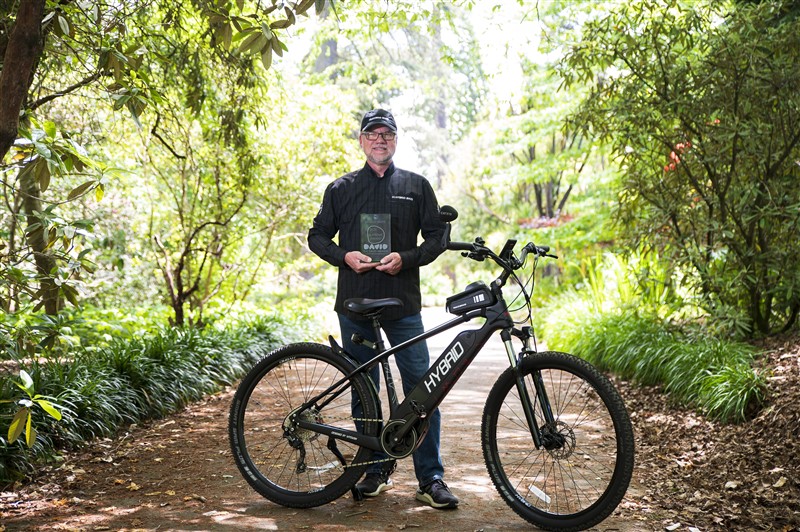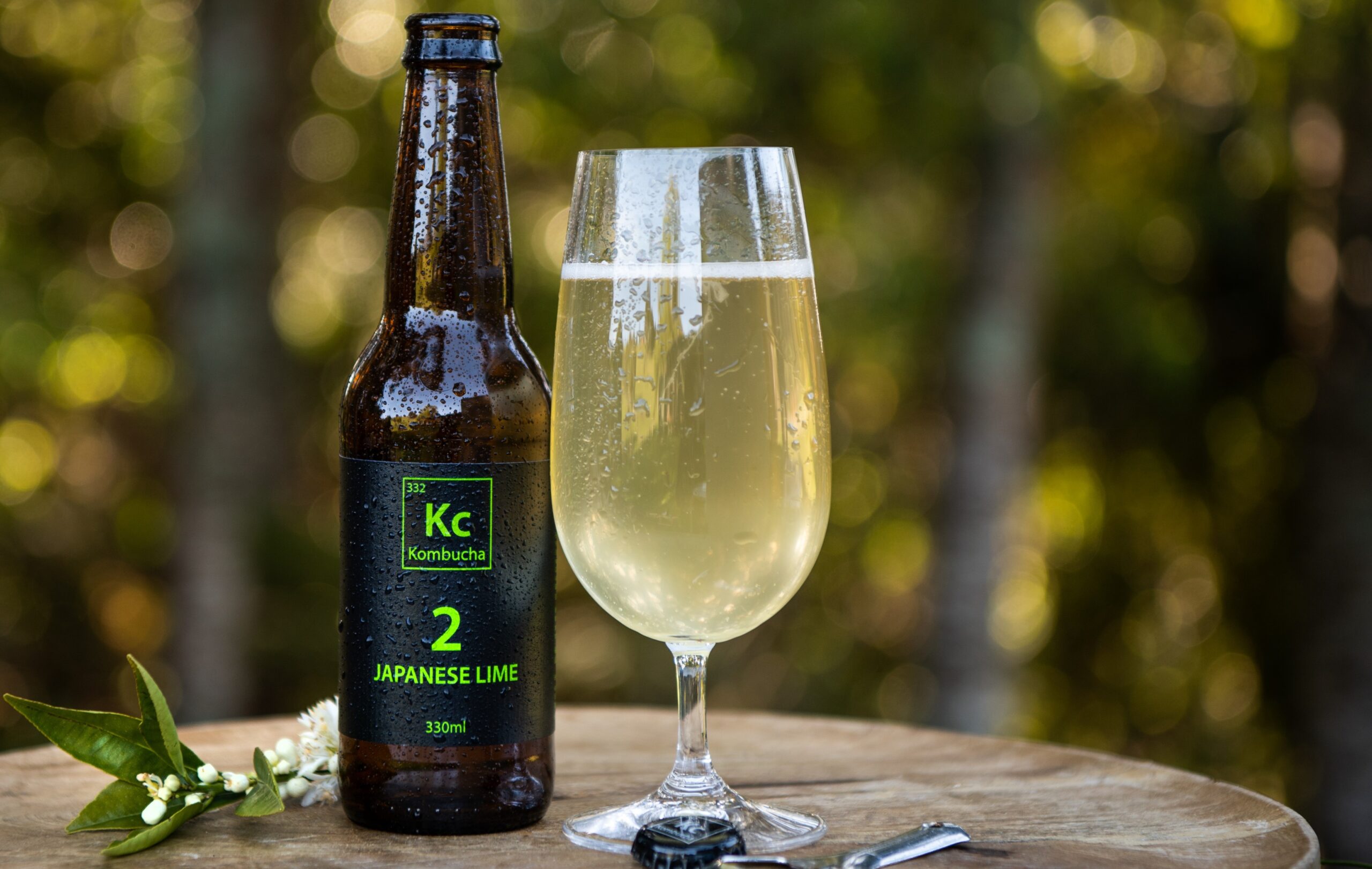What Simon says, Simon does
Taranaki’s Simon Moore never lets any hurdle get in the way of an innovative business idea. And he’s just teed off what could be his best idea yet. By Annie […]
Taranaki’s Simon Moore never lets any hurdle get in the way of an innovative business idea. And he’s just teed off what could be his best idea yet.
By Annie Gray.
Serial entrepreneur Simon Moore may well be what is known as a polymath. Or, as Wikipedia describes it: “An individual whose knowledge spans a substantial number of subjects, known to draw on complex bodies of knowledge to solve specific problems.”
Asked about this, Simon doesn’t agree or disagree but says he knows that ‘experts’ become ‘experts’ in a very narrow body of knowledge and that if you want to have a big, dangerous idea, you have to ask a lot of stupid questions.
New Plymouth-based Simon is now getting ready to launch his newest venture, Urquhart Golf, marketing an adjustable golf club he has developed.
In launching this new company, he appears to be drawing on the wide skillset he has developed throughout his working life.
Simon’s first role was in optometry. Then he became a self-taught blacksmith before moving back to optometry, then onto golf tech with an earlier iteration of an adjustable golf club, then onto his roofing business Flexiroof.
Now he’s working on Flexiroof Ltd and golf-tech again, with the new company Urquhart Golf Ltd.
The Urquhart Golf venture brand name honours the first inventor of an adjustable club way back in the 1890s.
Simon is a long-term golfer, and says he first bought an adjustable club about 25 years ago. While he liked the concept, he hated the implementation and “sat with it as a sleeping idea for two and a half decades”.
The new company’s website describes the club as a lighter way to golf. It notes that golfers will be able to play a whole round with just one club, which is adjustable for either 11 loft settings or six loft settings, so it can be used as anything from a putter to a driving iron.
It’s adjustable in two seconds and instead of carrying 14 golf clubs around the course, golfers need only carry just this one club.
Simon says the new product is expected to be launched on Kickstarter in mid-January 2022, and then at the Orlando PGA Golf Show, the world’s premier golf trade show, in late January.
As to what sort of uptake he expects, he says it is hard to know but they have initially ordered 2,700 clubs to be made.
“All I would say is that will not be enough. Randomly we just had a person in California reserve ten clubs for himself, his wife, and their eight kids.”
There are approximately 100 million golfers globally and when asked (as a vast generalisation) whether golfers are traditionalists or if they are open to change, Simon says it works both ways, in that new ideas can spread quickly but golfers buy the big four brands.
The clubs will sell for US$299.
Funded through Flexiroof
The research and development for the new club along with launch costs will work out at around $500,000 by the time they make their first sale, Simon says.
This has been funded through his profitable roofing company, Flexiroof, which he set up in 2013.
Flexiroof designs and markets “beautiful shelters for outdoor living” through a modular system.
That company too, has a quite different business model in that it donates ten percent of its profits each year to charity. It has donated funds to the Otago Peninsula Trust which works with the major albatross colony at the tip of the Otago Peninsula, as well as Taranaki Women’s Refuge and Starship Hospital.
Simon sees this charity clause as an excellent discipline for a founder and the team “to make sure they work on business that is very profitable”.
“It puts it on the team to have a great product and not be a ‘me too copycat’,” he says.
“I am not religious at all but tithing has been used for centuries and it feels like a real percent, not trivial. It is my hope other companies will follow our lead.”
Led by design
Asked about the cross-overs between the two businesses in the way he runs and develops them, Simon says it is all about design, which he describes as “simple and self-locking in character using friction and geometry”.
He says this thinking comes from his time as a blacksmith. In the 1990s he was working in a National Trust property in Kippen, Scotland, known as a ‘smithy’, and he taught himself the ancient art of blacksmithing.
“Bizarrely this is very relevant,” he explains.
The smithy had no modern tools (because it was a National Trust property) so he had to learn to put things together using friction, geometry, bending, twisting and folding.
He says over the past 30 years he has been designing using the very skills he learnt as a blacksmith.
Simon also has an interest in a third fledging company, Sign Sixty, which he says is developing a new way of putting up roadside signposts. He believes the technology used in this business will mean a signpost can be in place in 60 seconds, rather than 60 minutes. This also uses the same design thinking/recipe.
“Simple and self-locking in character using friction and geometry. It arose from a problem we had with Flexiroof – solving that led to the technology used in Sign Sixty,” he says.
But wait, there’s more
There’s a further note to add to this multi-layered business story. About 13 years ago Simon was on New Zealand’s Dragon’s Den television show demonstrating an earlier iteration of an adjustable golf club – for which the company, Puku Golf, was awarded $300,000 to market it in the United States.
An associated patent was bought by Nike Golf, and both Tiger Woods and Rory McIlroy used the driver with this technology.
As to what lessons he learned from selling the earlier golf product to Nike, Simon says Nike was honourable and fair, as was Taylormade Adidas in an earlier deal.
While he can’t say how much his company sold the patent to Nike for, he notes that “anything Nike wants, and buys, will be a nice number”.
“We declined their first offer and they were shocked, but a month later they increased it substantially.”
Story by Annie Gray, editor of Management magazine.




